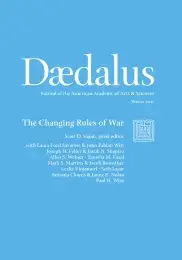Stay the Hand of Justice? Evaluating Claims that War Crimes Trials Do More Harm than Good
An enduring dilemma in war is whether and how to punish those responsible for war crimes. In this essay, we analyze the most frequent criticisms made by war crimes trial skeptics, including the claims that such trials endanger prospects for peace by encouraging enemies to continue fighting, that they achieve only “victors’ justice” rather than real justice, and that, in any event, they are unnecessary due to the existence of more effective and less costly alternatives. We conclude, in accordance with a “moderate retributivism,” that when carried out consistently with established law and procedure, and when not dramatically outweighed by concerns that trials will exacerbate ongoing or future conflicts, prosecutions are a legitimate, and sometimes necessary, response to violations of the laws of war and international criminal law more broadly.
At St. James’s Palace in London during January of 1942, representatives of the governments whose countries had been occupied or were under assault from Germany met to consider fundamental questions that world war and Hitler’s still waxing aggression had pressed upon them. To the threshold jus ad bellum inquiry of whether fighting the war was justified, they responded without equivocation. The Nazis’ advancing columns on three continents and regime of terror against diverse civilian populations left them no choice but to take up arms. To the jus in bello question of whether their own modes of fighting should be constrained by morality and law, the response at St. James’s Palace was, again, unequivocal. Although the desperate struggles to come would severely test the Allies’ unilateral commitment to restraints on warfare, the representative from occupied Belgium expressed the common sentiment that no matter how severe the necessities of war may be . . .
To read the full essay, access the PDF.
